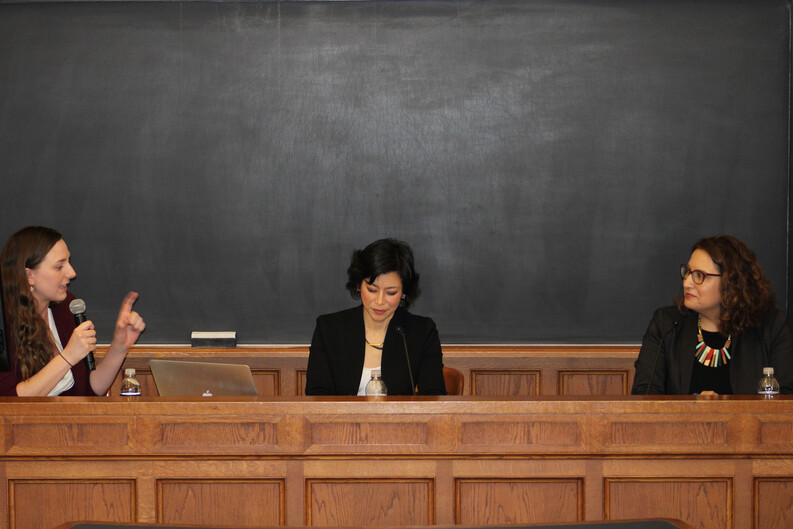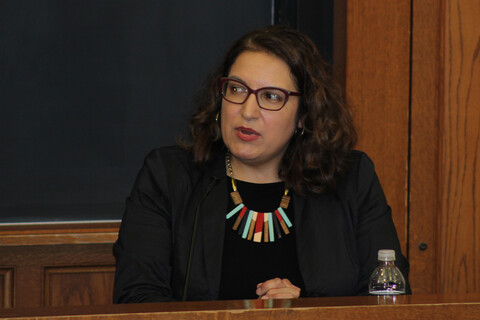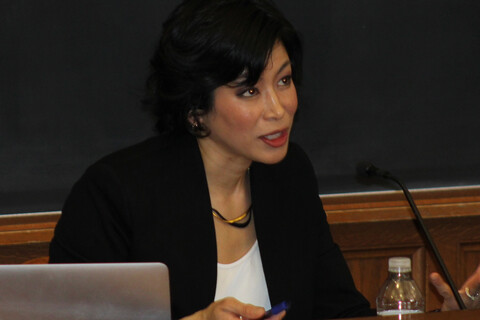Scholars Examine Supreme Court Decisions Through “Disability Lens”

The Yale Law School Disabled Law Students Association and the Solomon Center for Health Law and Policy recently hosted Professors Jasmine Harris and Karen Tani to discuss their article “The Disability Docket.” The March 14 event, moderated by Maggie Lemons ’25, attracted a large number of attendees, both in-person and virtually.
In the article, which is also co-authored by disability rights attorney Shira Wakschlag, the authors apply a “disability lens” to recent Supreme Court decisions. Harris, a Professor of Law at the University of Pennsylvania, began the conversation by explaining what that means.

To apply a disability lens, Harris said, is to use disability as a dimension through which to identify patterns in the Supreme Court’s jurisprudence, both in disability-related cases and in cases that do not directly pertain to disability. Harris gave an example of how a disability lens can illuminate cases that are not centered around disability: Dobbs v. Jackson Women’s Health Organization, in which the Court overturned Roe v. Wade. Harris explained that, although Dobbs is generally not framed as a disability rights case, examining the case through a disability lens exposes how the majority’s holding disproportionally burdens disabled people.
Tani, the Seaman Family University Professor at the University of Pennsylvania, then provided an example of a recent disability-related case that reflects the broader trend of retrenchment of civil rights in the Court’s decisions. In Cummings v. Premier Rehab Keller, P.L.L.C., the Supreme Court held that damages for emotional distress are not available under Section 504 of the Rehabilitation Act, a Spending Clause statute that prohibits recipients of federal funding from discriminating against disabled people. Tani, a legal historian, has recently explored the history of the legal doctrine the court relied on in Cummings. Limiting the types of damages available under Section 504 is not entirely new, Tani explained. However, she continued, Cummings constitutes a major hurdle for plaintiffs bringing civil rights claims under Section 504 and other Spending Clause statutes.

How do disability rights advocates react to this trend in the Supreme Court’s work? According to Harris, some disability rights advocates have adopted a strategy of preventing certain cases from being litigated before the court. Harris gave one recent example, Doe v. CVS Pharmacy Inc. The case stemmed from a lawsuit filed against the company by plaintiffs who take prescription drugs for HIV/AIDS. CVS, which had requested a review of the case by Supreme Court, dropped the case after reaching an agreement with a coalition of disability rights advocates.
The event concluded with a Q&A about the future of disability rights advocacy.


